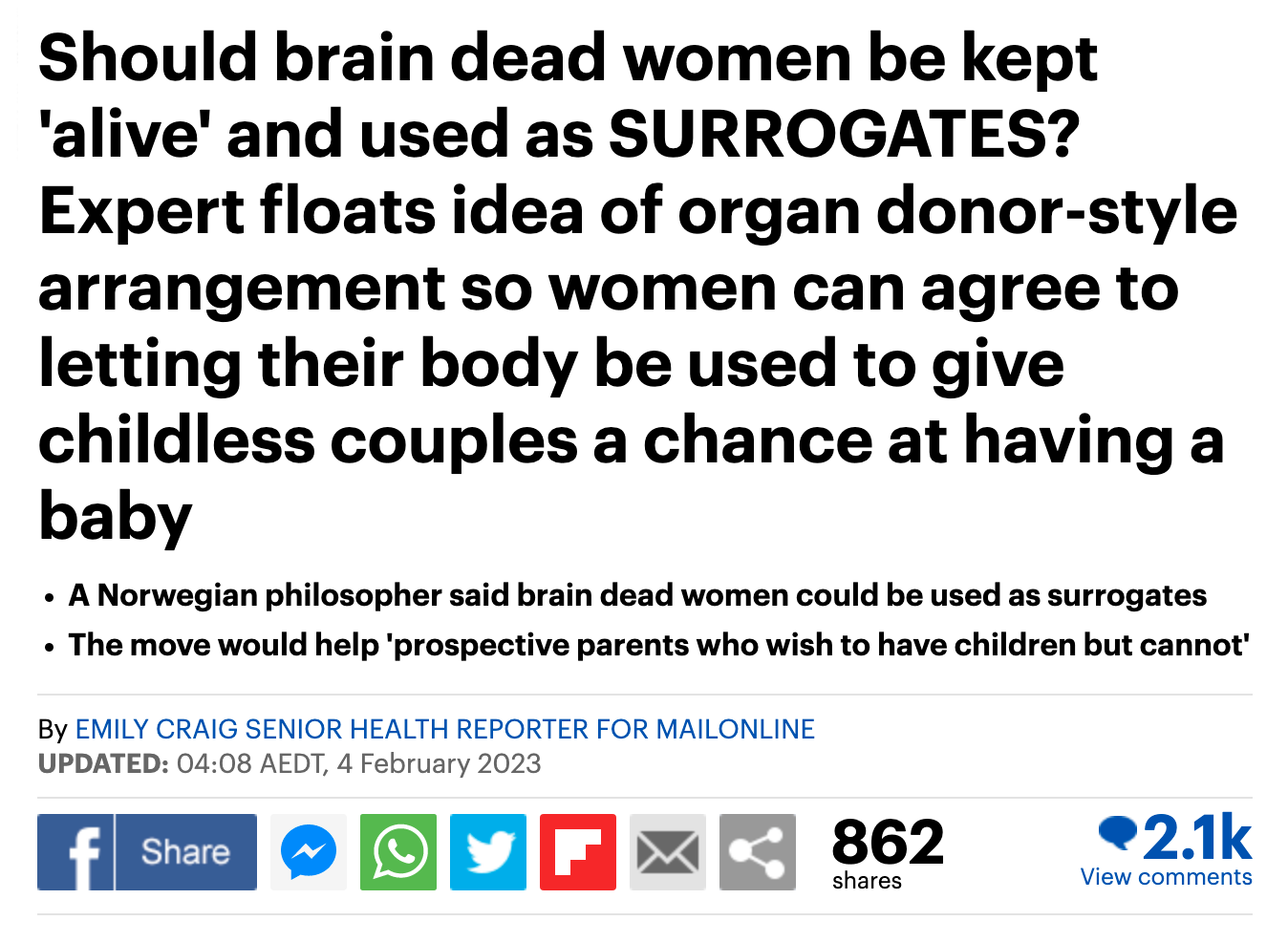
Bioethicist protests that ‘whole body gestational donation’ is misunderstood
Bioethicists have chosen a lonely and disheartening profession. Locked away in an office, they pound out publications which only a few hundred of people – at best! – will ever read.
But occasionally one of their articles escapes from the laboratory and spreads across the globe. The ensuing publicity may not add lustre to their reputation amongst colleagues, but it does make them social media stars – for a couple of days. The gold standard is a report in the Daily Mail.
This was the painful experience of Anna Smajdor, a bioethicist at the University of Oslo, after she published a paper on “whole body gestational donation” in Theoretical Medicine and Bioethics. There were over 2000 comments on the article in the Daily Mail and she was called “a misogynist, a Nazi, an evil scientist, a science illiterate, a far-right extremist, a far-left extremist, and much more” on social media.
BioEdge was one of the first publications to open the door so that Dr Smajdor’s article could go viral through social media. In it she contended that brain-dead women who had previously consented could offer their bodies as surrogate mothers. Read about it here.
However, the debate has moved on. Dr Smajdor has published a short explanation in BioNews of what she was trying to achieve with her article. Like other bioethicists she was trying to push social conventions to the limit to test their intellectual viability. She was toying with the notion of what used to be called “the wisdom of repugnance”:
It is worth asking whether everything that alarms and even revolts us today will seem acceptable a few years hence. Developments in technology tend to drive changes in what is perceived as being morally acceptable. But unless we want to wait passively for these changes to sweep over us, we need to look at what the future may hold, as well as turn a critical eye on practices that have become so banal and commonplace that we scarcely notice them.
It was, so to speak, a proof of concept. Could such a thing be imagined? Yes. If so, could an ethical justification be constructed for it? If we are repelled by it, what does that say about commonly accepted procedures?
My view as an ethicist is that the prospect of whole-body gestational donation is deeply disturbing. Yet discomfort alone is not enough to show that something is unethical. If it were, then many medical advances would be stopped in their tracks. So how can we sift between the layers of discomfort and repugnance in order to make clear-sighted distinctions between what is, and is not, ethically acceptable in this context?
Perhaps theoretical bioethics is a bit like tinkering with dangerous viruses. You have to pick the suitable biosafety level.
